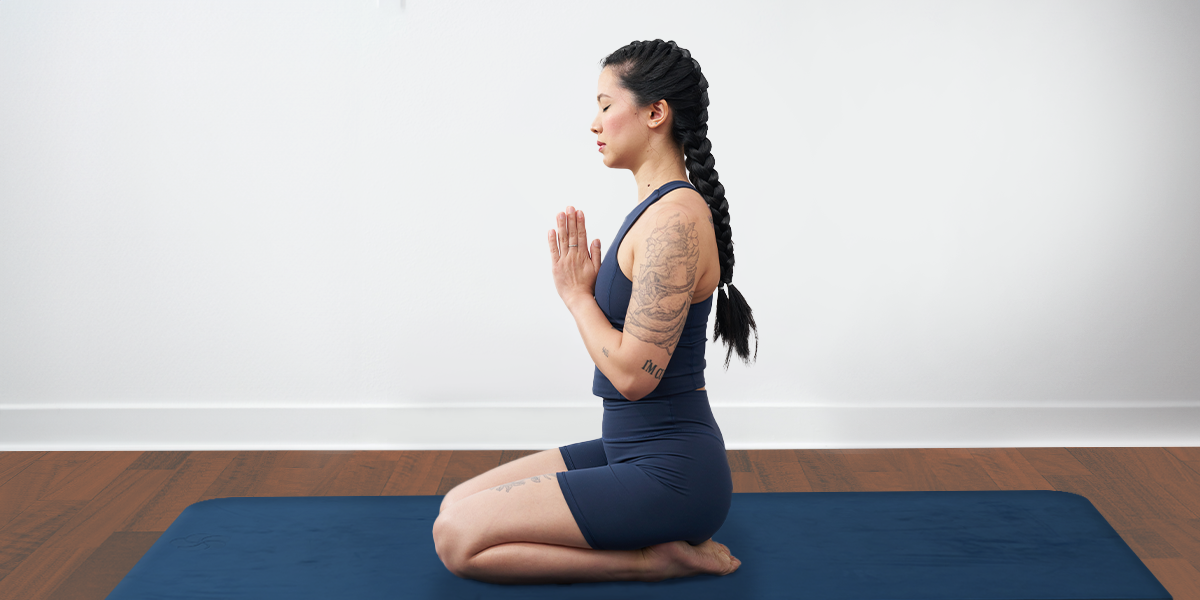The Importance of the Beginner’s Mind in Your Yoga Practice

Yoga goes far beyond the physical shapes; it is a mindful, intentional journey encompassing body, mind, and spirit. For those of us who have been practicing for a long time, it’s easy to forget what it means to be new… And forget the benefits of engaging with the practice with a beginner’s mind. We think we’ve seen it all; we know the movements inside and out, and it’s easy to fall into routine, auto-pilot, or operate from assumptions. But the essence of what yoga is goes hand in hand with cultivating a beginner’s mind: a mind fresh, free, and open.
What is the beginner’s mind?
Think of a time when you were brand new to something, perhaps your first yoga practice, the time you tried underwater basket weaving, or when you went to a fancy cooking class. Being a beginner at something can spark many feelings: discomfort, curiosity, excitement, to name a few. It also requires a different state of mind to foster learning: open-mindedness, receptivity, and presence.
Regardless of how long you’ve been practicing yoga, coming into class with a beginner’s mind allows us to approach our practice with fresh eyes continuously. It allows us to observe, discern, notice, and reflect in real-time, which in turn allows us to connect to the spirit of what yoga is: an opportunity to cultivate a deeper understanding of ourselves and our connection to others.
So how do we cultivate the beginner’s mind?
Embrace Open-Mindedness
The cornerstone of the beginner’s mind is rooted in open-mindedness. Being open-minded in yoga means letting go of preconceived expectations of ourselves and our practice and embracing the present moment. It’s common to consciously or unconsciously focus on achievement or specific shapes. Though they provide excellent benchmarks for your physical practice, lessening emphasis on aesthetics lets us focus on our relationship to the practice and the self. By releasing expectations, we create space for self-acceptance and compassion.
Do you ever think about what you “should” look like in a pose? Or what yoga is “supposed” to look and be like? If you ever catch yourself ruminating on these questions, see it as an invitation to step back and remember that approaching yoga with openness creates space for exploration, discovery, and listening to our bodies without judgment. We learn to appreciate the journey, not just the destination.
Each practice becomes an opportunity to explore, nurture, and listen to our bodies without judgment. Before we know it, we appreciate the journey instead of fixating on the destination. As we foster a harmonious relationship with our practice, so do we foster a loving relationship with ourselves.
Cultivating Curiosity
Curiosity is the gateway to endless possibilities. When we approach our yoga practice with curiosity, we create a sense of wonder in our exploration.
For long-time yoga practitioners, it’s easy to go on auto-pilot, and our brains naturally do it when we’re adept at the physicality of a movement or skill. But remember, our yoga practice is much more than just the physical side! So when we rely on autopilot, we lose the chance to understand the intricacies of each asana, movement, breath, and our bodies on any given day.
Practical things to focus on when in class are approaching sensation, movement, and breathing with curiosity by asking questions like, “How does this make me feel?” “What does it feel like when I press here?” “What happens if I change my alignment in this posture?” Regardless of the outcome, being curious gives us the ability to make informed decisions about what we need.
Learn to Love Humility
In the beginner’s mind, humility flourishes. We recognize the number of things we don’t yet know and acknowledge that we are perpetual learners on the yogic path. No matter how long we’ve been practicing, there is always more to discover and appreciate.
Approaching the yoga practice with humility allows us to be receptive to feedback and guidance and to recognize how our needs shift and change over time. It reminds us that the “goal” of a yoga class isn’t the most complicated shape or transition but to utilize our ability to engage with the present moment fully. Simple things like focusing on your breath, taking a break, or focusing on bodily sensations, can return you to the beginner’s mind.
The beginner’s mind catalyzes personal evolution, continuously expanding our understanding of yoga and our practice. It becomes a tool we can use on and off the mat to deepen our connection with our bodies, ourselves, and the world around us.
Whether we are novices or seasoned practitioners, approaching each practice session with a beginner’s mind allows us to tap into the limitless possibilities of the yogic journey.